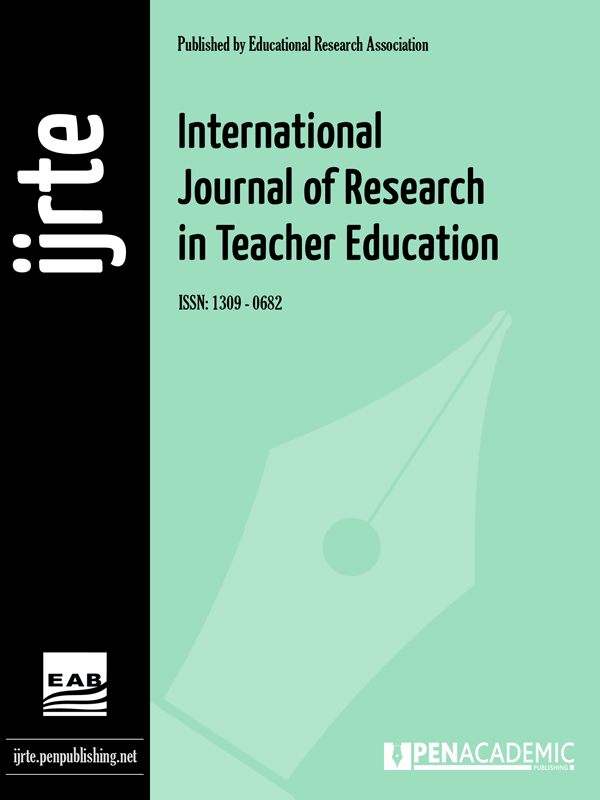Original article | International Journal of Research in Teacher Education 2018, Vol. 9(3) 21-36
Technology and Role-Play Task to Improve Students’ Speaking Performance
Jotıram Gaıkwad & Trıptı Karekattı
pp. 21 - 36 | Manu. Number: MANU-1808-08-0001
Published online: September 30, 2018 | Number of Views: 108 | Number of Download: 750
Abstract
The main purpose of teaching English language is to drive learners to communicate effectively in real life situations. Teaching to communicate in real life situations is often challenging as students get little chance to practice the target language in class. The aim of the present research is to find the effectiveness of technology and role-play to improve students’ speaking performance. The present experimental research was conducted on forty students of First Year of Bachelor of Commerce (F.Y.B.COM.) course. These selected forty students were randomly divided into two groups – the Controlled Group (CG) and the Experimental Group (EG). English was taught to both the groups over a period of one academic year as per the designed teaching/learning module (TLM) developed by the present researcher. The students in the experimental group received technology enhanced training on the module where as the controlled group just had the usual classroom training on the module. Data was collected through role-play task at the end of the teaching to assess, evaluate and compare their performance. The findings of the study show positive impact of technology based activities and role-play on the performance of the Experimental Group.
Keywords: Technology, Role-Play, Experimental Research, Controlled Group (CG), Experimental Group (EG), Teaching/Learning Module (TLM)
| How to Cite this Article? |
|---|
|
APA 6th edition Harvard Chicago 16th edition |
| References |
|---|
|
Al-Arishi, Ali Yahya. (1994). Role-play, real- play, and surreal-play in the ESOL classroom. ELT Journal, 48(4), 337-345. Arndt, V. (1987). Six writers in search of texts: A protocol-based study of L1 and L2 writing. ELT Journal, 41(4), 257-267. Canale, M. (1983). From communicative competence to communicative language pedagogy. In J. C. Richards, & R. W. Schmidt (Eds.), Language and Communication (pp. 2-24). London: Longman. Canale, M., and Swain, M. (1980). Theoretical bases of communicative approaches to second language teaching and testing. Applied Linguistics, 1(1), 1-47. Corder, Stephen (1967). The significance of learner’s errors. International Review of Applied Linguistics, 5, 161-70. Dornyei, Z. (1995). On the teachability of communication strategies. TESOL Quarterly, 29 (1), 55-85. Ellis, R. (1984). The study of second language acquisition. Oxford: Oxford University Press. Faerch, C., & Kasper, G. (1983). Plans and strategies in interlanguage communication. In C. Faerch & G. Kasper (Eds.), Strategies in interlanguage communication (pp. 20-60). London: Longman. Gołębiowska, Aleksandra (1987). Let’s talk: A book for teachers. Warszawa: Wydawnictwo Szkolne i Pedagogiczne. Ladousse, Gillian Porter (1987). Role play. Oxford: Oxford University Press. Sasaki, M. (2000). Toward an empirical model of EFL writing processes: An exploratory study. Journal of Second Language Writing, 9(3), 259-291. Tarone, E. (1977). Conscious communication strategies in interlanguage: A progress report. In H.D. Brown, C.A. Yorio & R. C. Crymes (Eds.), On TE-SOL ’77 (pp.194-203). Washington: TESOL. Victori, M. (1995). EFL writing knowledge and strategies: An interactive study. Unpublished PhD dissertation, Universitat Autonoma de Barcelona (Spain), Barcelona. Wenden, A. L. (1991). Metacognitive strategies in L2 Writing: A case for task knowledge. In J. E. Alatis (Ed.), Georgetown University Round Table on Languages and Linguistics 1991 (pp. 302-322). Washington, D. C.: Georgetown University Press. |


